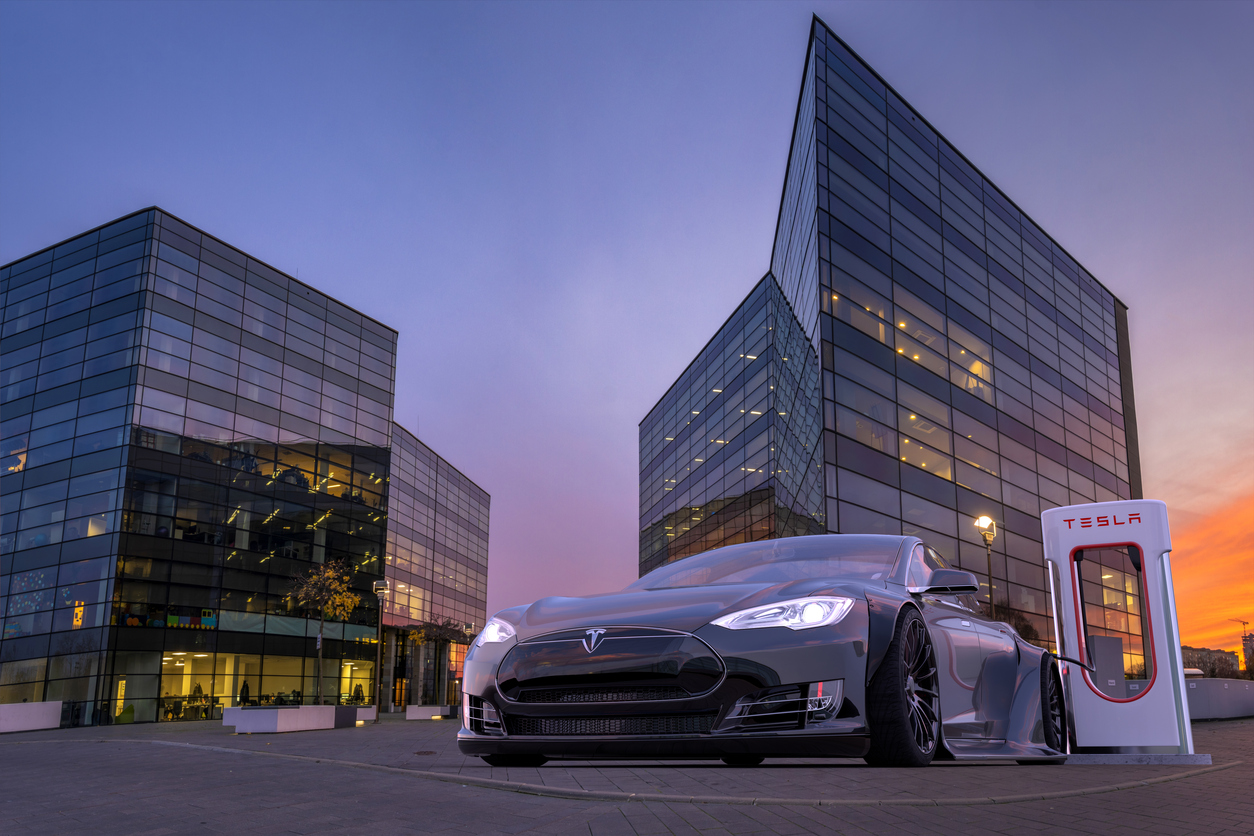Professor Stephen Wyatt looks to the battle between Tesla and General Motors to explore why past performance is becoming irrelevant.
In 1934 Benjamin Graham addressed the question of how much a company’s share price should be with a formula [ (E x G)/K2 + (D/K) ]. E is the company’s earnings, G is the rate of growth, D is the Dividend pay-out and K is the risk adjusted cost of capital. So, for a company like the 112 year old General Motors with a track record of earnings and dividends – if we were to look pre-pandemic (in early 2020!) – the stock was trading in the mid US$30s, which would imply a risk adjusted cost of capital around 6%, given their dividend policy at the time and anticipated growth rate.
However, Benjamin’s formula of fair-value has seen decreasing relevance for many investors, an increasing proportion of companies and for business leaders. The formula was created in an era when business trading conditions were expected to be approximately stable, apart from Force Majeure disruptions, such as declarations of war. Increasingly, the expectation of stable conditions has been undermined not only by disruptions such as the Global Financial Crisis and the Covid pandemic but also by the unrelenting advances of the 4th Industrial Revolution and the forces of Volatility, Uncertainty, Complexity and Ambiguity that, for many, have characterised the new-normal.
In early 2020, General Motors was valued at US$44bn, whereas upstart Tesla – whilst barely producing any profit and selling only a fraction of the cars of General Motors (0.5 vs 7.8 million) – was valued at over US$137bn. Today it is valued at nearly US$650bn. Tesla has now left the ranks of ‘Unicorns’ (companies valued at over US$1bn whilst yet to produce a reliable profit) but there are plenty of others, over 700 in fact, with a combined worth of over US$2Tn.
So what is the relevance of Price/Earnings ratios for traded company shares or the concept of fair-value when there are barely any earnings? Investors, whether in public traded or privately held companies, are ever more focused on how they think a company will navigate on-going turbulence and how successful they believe the company will be in an imagined future. A future which has yet to unfold and is expected to be quite different from the past and present. Companies are cleaving into two groups: a dwindling proportion remain faithful to traditional views that past and current earnings are the best indicators of future performance; an increasing proportion are capturing disproportionately high valuations through building confidence that they will shape and thrive in the future, despite current and past earnings. In this context, legacy assets and activities may be viewed with caution. Is what we did yesterday and today binding us to the past, such that we are not making the bold decisions required for us to win the race for tomorrow?
As CEO of General Motors, Mary Barra has been taking the automotive giant on a journey of transformation, making bold and tough decisions, such as closing factories and selling off overseas businesses whilst investing strongly in electric and autonomous vehicles and battery design and production. In February 2020 she stated “I’ve often said that we will do the right thing, even when it’s hard, and this is one of those times. We are restructuring our international operations, focusing on markets where we have the right strategies to drive robust returns, and prioritizing global investments that will drive growth in the future of mobility, especially in the areas of EVs and AVs." The daughter of an automobile worker, Mary knows the company and the industry very well. She also started her career at the company. Since the pandemic, the company’s value has doubled to almost US$90bn, as investor confidence in her ability to achieve the vision has grown.

In contrast, Elon Musk, the outspoken entrepreneur at the helm of Tesla is known both as a visionary and for achieving outlandish goals. He has a string of successful ventures across a broad range of sectors and technologies including Space Travel and Mind Control, yet he is also currently the longest serving CEO of any automobile company.
Investors focusing on future earnings potential are increasingly backing leaders who will push through both the known and the as yet unknown challenges that will arise as they pursue brave, perhaps even audacious visions. As the 4th Industrial Revolution gathers pace disproportionate value will be created by those leaders who are not bound by the past way of doing things but are also not dismissive of the learning and capabilities that have been built up. Three tenets stand out as the formula of success for these companies:
- Firstly, a big, bold vision of a new future combined with an impatience and unrelenting drive to overcome the obstacles known and unknown. Such a vision is often purpose-led, described in ways that will benefit society. There is a high level of energy as management teams encounter and resolve paradoxes and the organisation is in a continuous state of evolution and flux.
- Secondly, there is a high capacity for the company to act dynamically in anticipation of and reaction to changes in the marketspaces in which it operates. This is produced from investing in the processes and capabilities to sense & make sense of the weak (and strong) signals of change, to act decisively in a timely manner to seize opportunities or avoid setbacks and also the ability to adjust, morphing, the activities and assets within the firm and accessed externally.
- Thirdly, the ability to attract, develop, deploy and retain talent. The 4th Industrial Revolution is witnessing an incredible rate of role and skill displacement and the need for upskilling and reskilling. The World Economic Forum 2020 estimated 50% of the current working population will need to upskill or reskill by 2025. Key to winning the ‘race’ for 4th Industrial Revolution talent is adoption of human-centric approaches that support the well-being (emotional stress and physical) of workers.
In a five year study of the relative performance of companies (2014-2019) the stock prices of companies that had these three tenets of performance in place out performed those that did not by over 45% (31% higher than the median). The differences in performance are most pronounced in the sectors that are changing most quickly (such as technology).
In today’s world a bold vision is not enough: Overcoming known and unknown obstacles in a timely manner, with a human-centred approach to workforce management, empowering teams to resolve paradoxes and corporate and personal continuous learning and evolution is the test of leadership…and the route that creates disproportionate value.
Management and Leadership in the 4th Industrial Revolution by Stephen Wyatt is published by Kogan Page, priced £19.99, available online and from all good bookshops.









